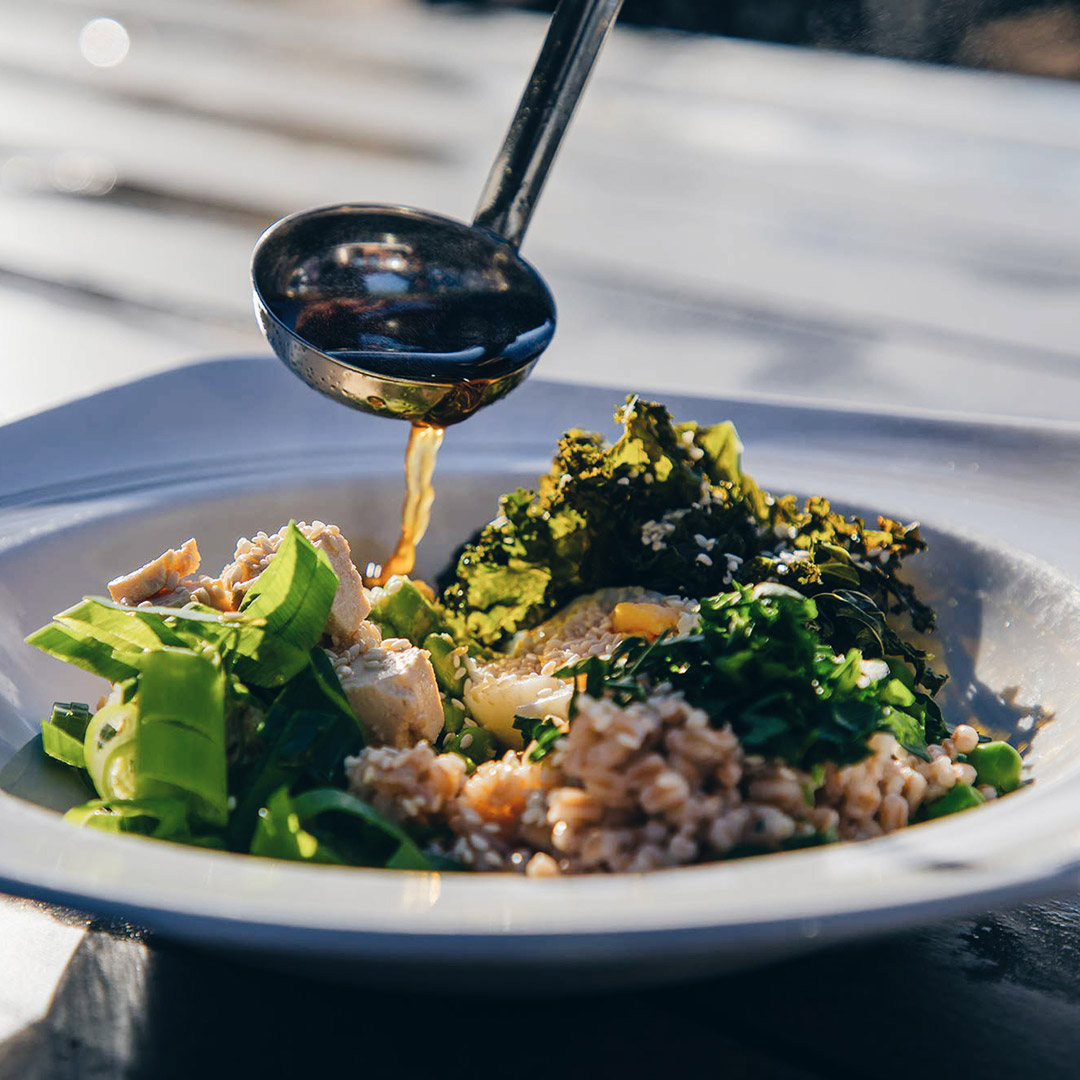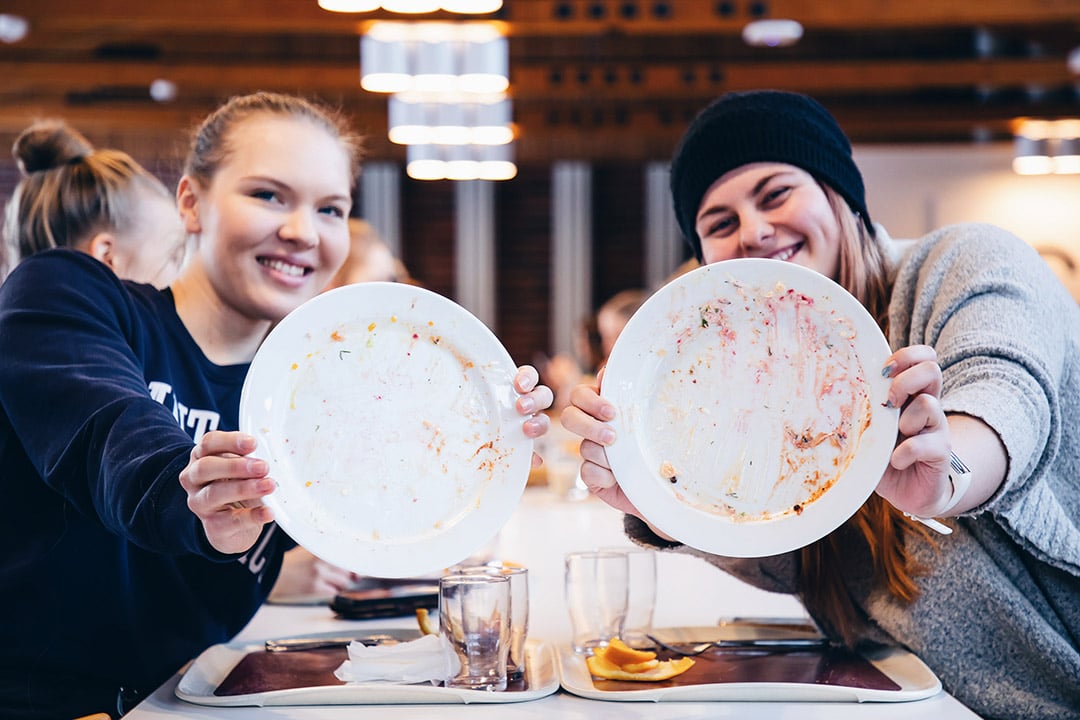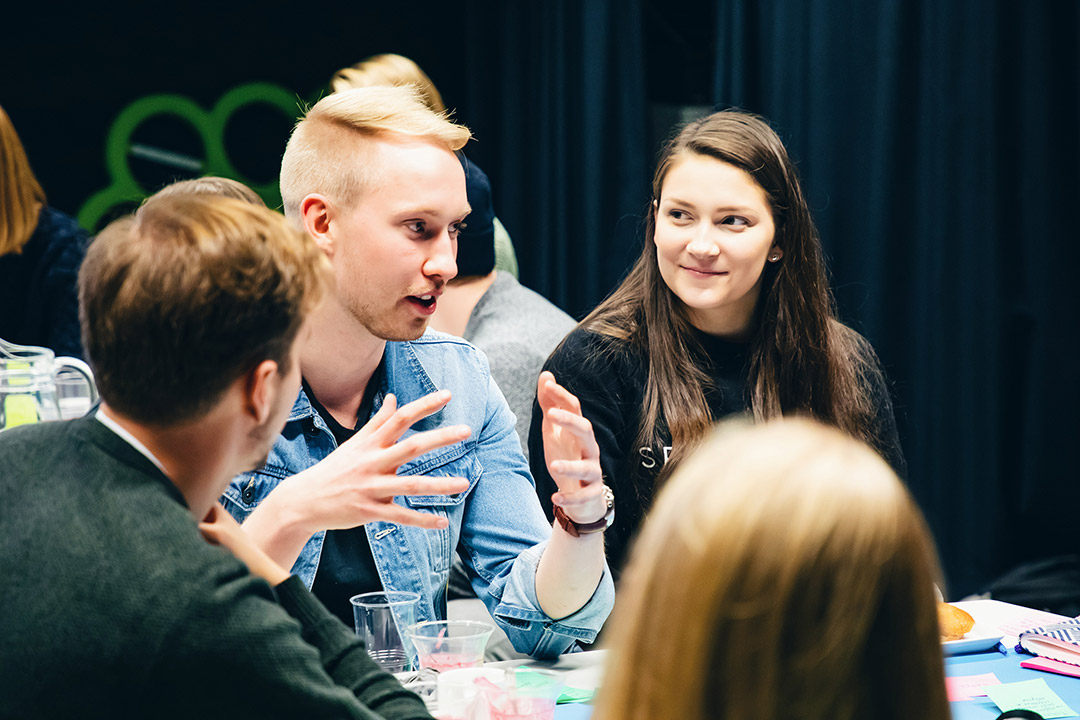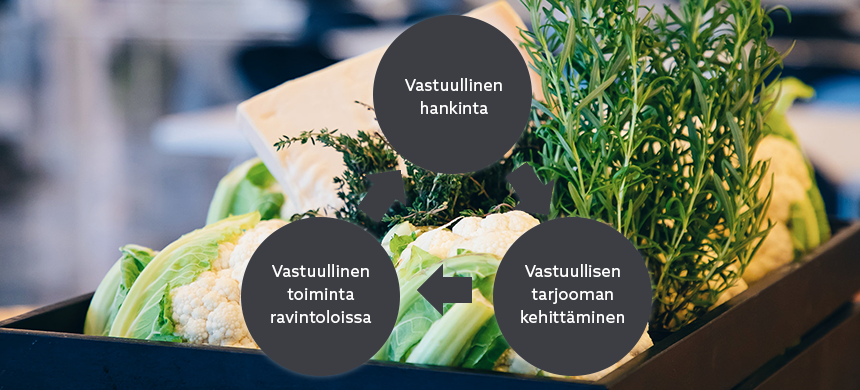We demonstrate our responsibility through our words and actions. You can get familiar with our responsibility on this page in which we have gathered examples of our operations
Sustainable food production chain
Planning food production, selecting raw materials, and developing more sustainable alternatives are the foundation of our responsible operations.
1. Smart resource planning and adaptation to demand
- We design our menus to align with seasonal availability.
- We minimize food waste through period-based preparation. We prepare meals throughout the day which allows us to respond to the daily consumption and avoid overproduction.
- We follow the "First in, First out" principle to prevent unnecessary spoilage and waste of raw materials.
2. We are thorough with our portfolio of ingredients
- We use only fish approved by WWF and ensure that no species from WWF’s red list appear on our menus.
- We comply with the Compass Group FS Finland sustainability program, which guides our procurement practices.
- As part of the Cage-Free Jyväskylä campaign, we are committed to using only organic, barn-laid, and free-range eggs. Goal achieved in 2024.
- We use 100% Finnish chicken, and all fresh beef, pork, and poultry are sourced from Finland.
- Our events and everyday offerings include Fair Trade, organic, and carbon-neutral coffee.
- We strengthen our collaboration with local producers and operators. For example, the short distance to Lake Päijänne enables reasonable delivery and storage times for freshwater fishes which play a crucial role in our catering menus.
3. We develop more sustainable vegetarian and vegan lunch options
We try new concepts which aim to encourage our customers to favor vegetarian and vegan options.
- We prepare vegetarian and vegan meals daily. If the vegan dish is not available on the line, it can be requested directly from the kitchen.
- Plant-based and vegan options are available across all our services, including snacks and catering.
- We have profiled restaurant Uno as a vegetarian food focused place.
- We run various experiments through campaigns and initiatives, such as the "Mix and Match" concept, which allows customers to try plant-based dishes alongside meat options with low barriers. Additionally, during themed days and weeks, we offer fully vegan café deals to inspire customers to explore plant-based alternatives.
- We regularly organize promotions and campaigns for vegan options to identify products that best meet customer preferences.

Multiple forms of recycling
Recycling, waste prevention, and sustainable choices are central principles of our operations, helping us foster a more environmentally friendly food culture.
1. Recycling and sustainable choices
- All waste generated in our restaurants is properly recycled as part of a comprehensive waste management plan. Reports from autumn 2024 indicate a 100% utilization rate for our waste, highlighting the efficiency of our recycling practices.
- Semma is committed to improving material efficiency in the food industry through its participation in the sector’s material efficiency commitment. Read more about the commitment here
https://sitoumus2050.fi/materiaalisitoumukset#/details/737360
- We have completely phased out plastic disposable products.
- We use biodegradable materials for disposable containers, such as biodegradable plastic for smoothie cups.
- Our disposable cardboard cups are made from 100% renewable, plant-based, PEFC-certified materials.
- We encourage sustainable choices by offering a 10-cent discount on coffee or tea purchased with a reusable cup.
2. Waste prevention and monitoring
- We track daily food waste at our locations and continuously seek ways to reduce it.
- Twice a year, we organize Food Waste Week to illustrate the amount of plate waste generated and raise awareness of the importance of waste reduction.
- In 2023, total plate waste amounted to 14 573,87 kg, averaging 18,15 g per customer. Over the past five years, the amount of plate waste has decreased by an average of 4 grams per customer, indicating significant progress in waste minimization.
3. Utilizing leftover food
- Every day, leftover food is sold for 10 minutes after closing for takeout.
- We use the ResQ app to sell leftover food directly to customers quickly and conveniently.
- We adhere to the principle that every ingredient deserves to be used to the last crumb. For example, leftover breakfast porridge is turned into flatbread.

Environmentally friendly practices
- We transport products between campus locations using an electric vehicle.
- We minimize unnecessary energy consumption by turning off lights and appliances when not in use.
- We prefer steam cleaning for kitchen equipment, which saves water and minimizes the use of chemicals.
- We document our own reports digitally.
Collaboration for sustainability
Semma is actively involved in various partnerships and projects to promote sustainable development. We work closely with students, the university, and other partners to enhance our sustainability efforts and reduce our environmental impact. Examples of our collaborations include:
- In 2024, we launched a partnership with the university’s sustainability team and the Planetary Well-being for JYU program, focusing on combining development and research collaboration.
- We are part of the University of Jyväskylä’s goal to achieve carbon neutrality by 2030. This target guides many of our sustainability initiatives and decisions.
- We collaborate with the University of Jyväskylä’s Wisdom community, which has led to a thesis project exploring Semma’s carbon footprint and identifying ways to reduce it.
- We are currently conducting a biodiversity footprint analysis as part of a master’s thesis project, scheduled for completion in 2025. The study provides valuable insights into our environmental impact and helps identify ways to mitigate it.
Making sustainability visible – inspiring communication to support choices
At Semma, we believe sustainability is not just an individual effort but a shared project for the entire community. Through informative and encouraging communication, we strive to build a more sustainable future together.
- On our menus, vegetarian dishes are always listed as the first option.
- We label climate-friendly options on our menus with an ILM tag, indicating that the raw materials used have an average carbon footprint 30% lower than a typical meal.
- We promote sustainability through themed weeks and partnerships. Twice a year, we organize a Sustainability Week and participate in the annual Sustainable Development Week, highlighting the importance of sustainability in eating habits and society as a whole.
- Additionally, we support and highlight international and local theme days focused on sustainability, such as World Vegan Day and Environment Day, emphasizing how even small everyday choices can make a big difference.


